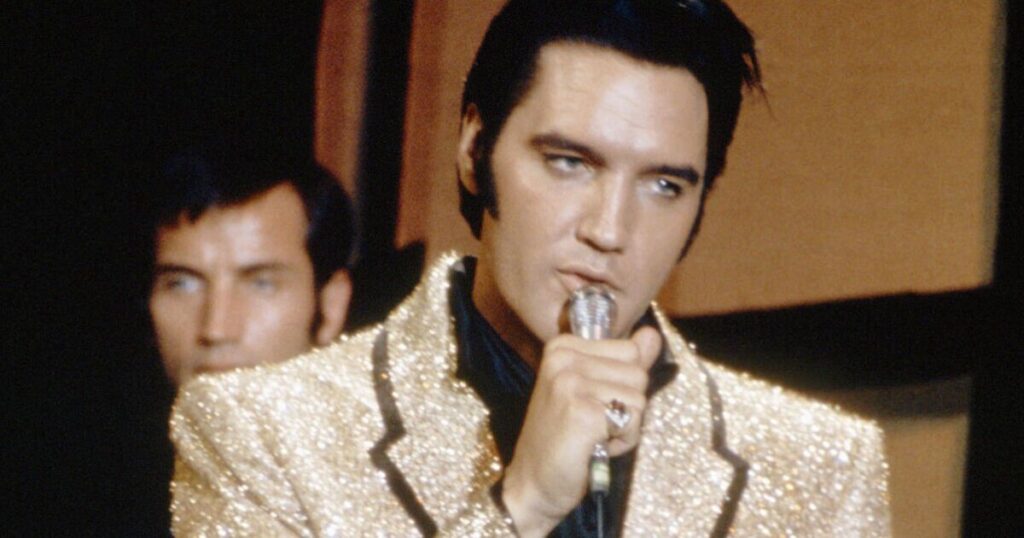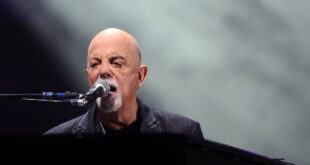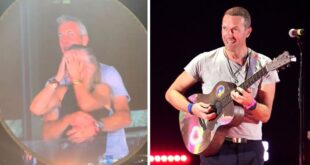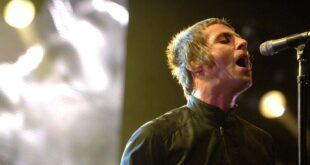
Elvis Evolution has just opened at London’s Excel centre, promising an immersive, dazzling multimedia deep dive into one of the most important turning points in the icon’s life. Instead, angry fans have branded the new Elvis show “one of the worst things I’ve ever seen.”
How did they get it so wrong, when the December 3 CBS live broadcast was packed with backstage drama and on-screen magic (and controversy)?
Once the biggest star in the world, The King was regarded as a has-been by the end of the Sixties, with declining record sales and a soggy catalogue of predominantly formulaic films. An electrifying live performer, he hadn’t performed a show for seven years under the iron grip of his manager Colonel Parker.
Parker wanted the broadcast to be a safe, middle-of-the-road light-entertainment vehicle. To his shock, Elvis stood up to him and even went behind his back. For a brief moment, a very different future seemed possible.
To be clear, none of this is shown in Elvis Evolution and you can read our full damning review here.
The canny NBC Producer Bob Finkel later revealed he could see that Elvis was “not interested in what Colonel Parker has to say about this show; he wants everyone to know what he can really do.” Finkel brought in progressive director Steve Binder and for a magical moment The King was restored to his full glory.
Elvis played the game, pretended to go along with Colonel Parker, but Binder recalls leaving a meeting together and The King jabbing him in the ribs and quietly murmuring ‘F**k him.”
After playing it so safe for so long (and against his true wishes) Elvis confided that he was “scared to death” by their bold plans for the TV special and asked Binder, “What happens if I bomb?” – and rightly so. He knew that the youth of the day had moved on.
Binder tod him he had faith that “every door that was closed to you will reopen.”
On the show, Elvis took the studio and home audience through the glittering history of his career with lavishly staged versions of hits showcasing his star power. But he also dazzled audiences and critics with a bold intimate acoustic set. He picked up his guitar, something that had been a signature of his earliest years.
And then he spectacularly showed he remained a relevant artist with his daring final song choice.
Elvis defied Parker, who wanted an easily marketable Christmas song, by asking Walter Earl Brown to compose something inspired by the recent assassinations of Martin Luther King and Robert Kennedy. The King debuted If I Can Dream on the show, bringing all of his genius to the powerful anthem and leaving his backing singers “in tears.”
The broadcast was the biggest of the season, capturing 42% of all TV viewers. Elvis was back, culturally relevant, and proving he was the supreme artist and performer. Riding high, he defied Parker again by asking composer Mac Davis, who had already written the song Memories for the TV comeback special, for new material. The first song on the tape of demos sent over was the socially and politically charged In The Ghetto.
Davis later said: “The Colonel and RCA didn’t want him to release In The Ghetto… because it was against the image they had for him. They didn’t want him bringing up social issues. They wanted him to be mister rock and roll, mister pop, whatever you want to call it. But Elvis fought for that song.”
For a brief few years, Elvis recorded material that meant something to him. Suspicious Minds also came out during this fertile creative period. He went back on tour, reigniting his joy in performing for his fans.
But he also always needed others around him to sustain him, and Parker was determined to regain control. The star had given Binder his number, hopeful they could collaborate again, but the director found it impossible to get through. Parker had closed down access.
It’s hard to watch the vibrant, healthy, dazzling man on screen in the 1968 TV special and not regret what was to come later – and what might have been.
 Latest World Breaking News Online News Portal
Latest World Breaking News Online News Portal






